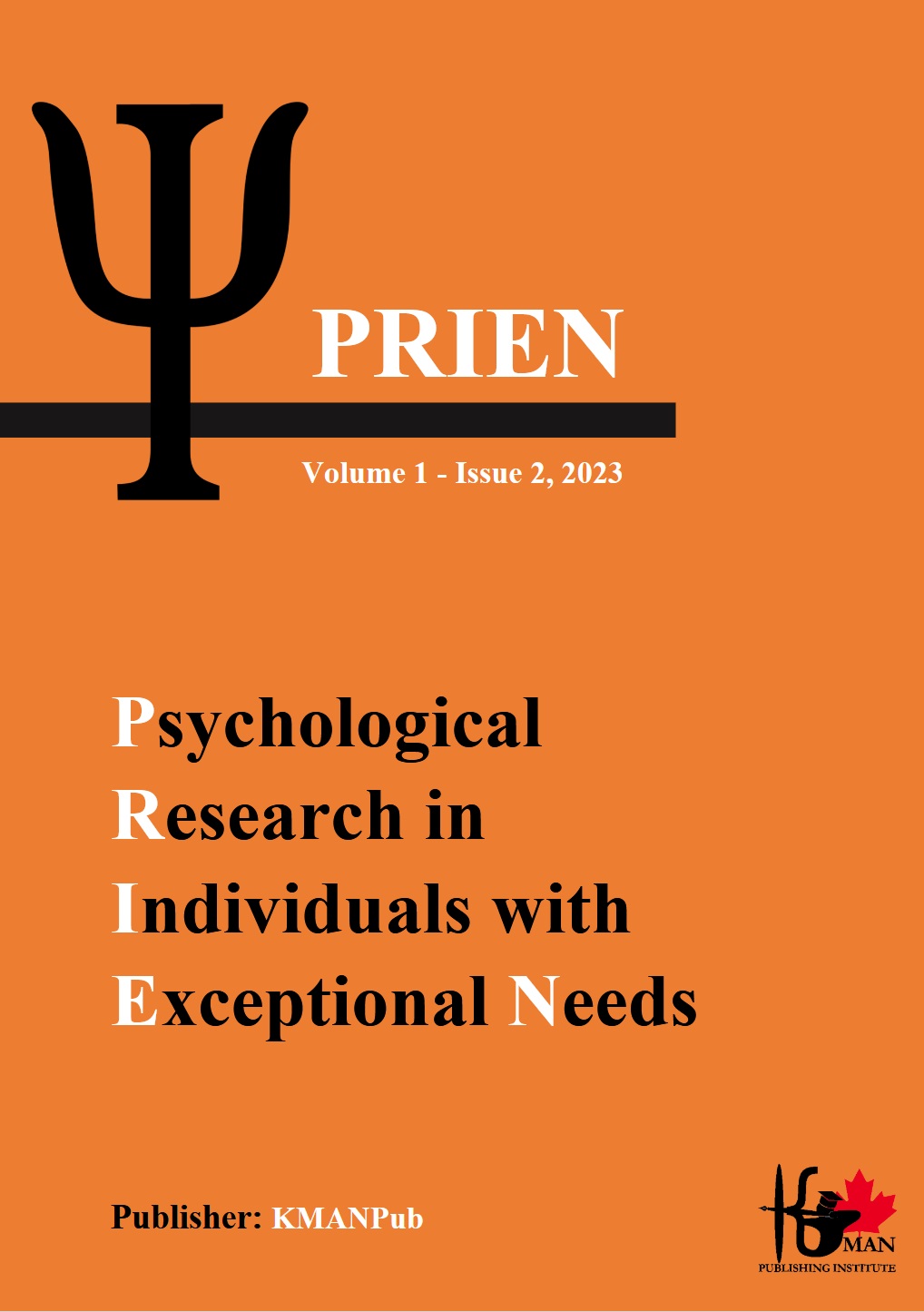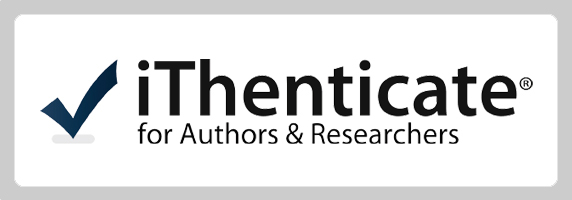The Role of Neurofeedback in Managing Behavioral Issues in Children with Exceptional Needs
Keywords:
Neurofeedback, behavioral issues, children, exceptional needs, attention, emotional regulation, social interactions, academic performance, well-beingAbstract
This study aims to explore the role of neurofeedback in managing behavioral issues in children with exceptional needs. This qualitative research employed a phenomenological approach to gain deep insights into participants' experiences. A purposive sampling strategy was used to select 20 participants, including 8 parents, 5 neurofeedback practitioners, 4 educators, and 3 pediatric psychologists/psychiatrists. Data were collected through semi-structured interviews, which were audio-recorded and transcribed for analysis. Thematic analysis was conducted to identify and develop key themes from the data, ensuring credibility and reliability through member checking and peer debriefing. The study identified significant improvements in children's attention, emotional regulation, social interactions, academic performance, and overall well-being following neurofeedback therapy. Participants reported enhanced focus, reduced tantrums, better peer relationships, improved grades, and increased energy levels. Challenges included accessibility issues, therapy duration, individual differences in response, and technical difficulties. These findings align with previous studies demonstrating the efficacy of neurofeedback in managing behavioral issues in children with ADHD, ASD, and other developmental disorders. Neurofeedback shows promise as an effective intervention for managing behavioral issues in children with exceptional needs. However, challenges such as accessibility, therapy duration, and technical difficulties need to be addressed. Future research should focus on larger, more diverse samples, control groups, and long-term effects. Practical recommendations include increasing accessibility, tailoring treatment plans, and integrating neurofeedback with other therapeutic approaches for holistic child development.
Downloads
References
Aghaziarati, A., Fard, F. R., Rahimi, H., & Parsakia, K. (2023). Investigating the Effect of Electrical Stimulation (tDCS) of the Prefrontal Cortex of the Brain on the Improvement of Behavioral and Neurological Symptoms of Children with Specific Learning Disabilities. Health Nexus, 1(2), 44-50.https://doi.org/10.61838/kman.hn.1.2.6
Bahadur, E., & Karaca, H. (2023). Growing Concern; The Relationship Between Screen Time and Behavior Problems in Digital Era. Medicine Science | International Medical Journal, 12(1), 204.https://doi.org/10.5455/medscience.2022.12.269
Coben, R., Linden, M. A., & Myers, T. E. (2009). Neurofeedback for Autistic Spectrum Disorder: A Review of the Literature. Applied Psychophysiology and Biofeedback, 35(1), 83-105.https://doi.org/10.1007/s10484-009-9117-y
Davis, E. S., Loeb, D. F., & Lee, T. (2021). Implementing Play and Language Therapy to Work With Preschool Children With Language and Behavioral Issues. International Journal of Play Therapy, 30(2), 157-166.https://doi.org/10.1037/pla0000148
Drechsler, R., Straub, M., Doehnert, M., Heinrich, H., Steinhausen, H.-C., & Brandeis, D. (2007). Controlled Evaluation of a Neurofeedback Training of Slow Cortical Potentials in Children With Attention Deficit/Hyperactivity Disorder (ADHD). Behavioral and Brain Functions, 3(1), 35.https://doi.org/10.1186/1744-9081-3-35
Hanifah, L., Nasrulloh, N., & Sufyan, D. L. (2023). Sedentary Behavior and Lack of Physical Activity Among Children in Indonesia. Children, 10(8), 1283.https://doi.org/10.3390/children10081283
Imperatori, C., Mancini, M., Marca, G. D., Valenti, E. M., & Farina, B. (2018). Feedback-Based Treatments for Eating Disorders and Related Symptoms: A Systematic Review of the Literature. Nutrients, 10(11), 1806.https://doi.org/10.3390/nu10111806
Kouijzer, M. E., Moor, J. M. H. d., Gerrits, B. J., Congedo, M., & Schie, H. T. v. (2009). Neurofeedback Improves Executive Functioning in Children With Autism Spectrum Disorders. Research in Autism Spectrum Disorders, 3(1), 145-162.https://doi.org/10.1016/j.rasd.2008.05.001
Kwon, S. Y. (2023). The Effect of Mobile Neurofeedback Training in Children With Attention Deficit Hyperactivity Disorder: A Randomized Controlled Trial. Clinical Psychopharmacology and Neuroscience, 22(1), 67-78.https://doi.org/10.9758/cpn.23.1054
Leins, U., Goth, G., Hinterberger, T., Klinger, C., Rumpf, N., & Strehl, U. (2007). Neurofeedback for Children With ADHD: A Comparison of SCP and Theta/Beta Protocols. Applied Psychophysiology and Biofeedback, 32(2), 73-88.https://doi.org/10.1007/s10484-007-9031-0
Liao, Y.-C., Guo, N.-W., Su, B.-Y., Chen, S.-J., & Tsai, H.-F. (2022). Effects of Twenty Hours of Neurofeedback-Based Neuropsychotherapy on the Executive Functions and Achievements Among ADHD Children. Clinical EEG and Neuroscience, 53(5), 387-398.https://doi.org/10.1177/15500594221101693
Nanjwan, J. D., Uzor, M., & Ongbonya, I. M. (2020). Behavior Modification as a Way of Promoting Education of Children With Special Needs in Inclusive Schools in Cross River State Nigeria. International Journal of Advanced Research, 8(1), 166-169.https://doi.org/10.21474/ijar01/10277
Nooripour, R., Hosseinian, S., Afrouz, G. A., & Bakhshani, N.-M. (2018). Effectiveness of Neurofeedback on Executive Functions and Tendency Toward High-Risk Behaviors in Adolescents With Attention Deficit Hyperactivity Disorder. International Journal High Risk Behaviors & Addiction, 7(4).https://doi.org/10.5812/ijhrba.82012
Shinn, M. M. (2013). Parent–Child Interaction Therapy With a Deaf and Hard of Hearing Family. Clinical Case Studies, 12(6), 411-427.https://doi.org/10.1177/1534650113500065
Shojaei, B. (2024). Reducing Symptoms of Attention Deficit/Hyperactivity Disorder (ADHD) in Elementary Students: The Effectiveness of Neurofeedback. Annals of medicine and surgery, 86(5), 2651-2656.https://doi.org/10.1097/ms9.0000000000001861
Sivayokan, B., Sivayokan, S., Kumanan, T., Sathiadas, M. G., & Sivapathamoorthy, T. (2023). The Characteristics of Autistic Children Attending a Neuro-Developmental Center in Northern Sri Lanka. Cureus.https://doi.org/10.7759/cureus.35970
Stahmer, A. C., Leslie, L. K., Hurlburt, M. S., Barth, R. P., Webb, M. B., Landsverk, J., & Zhang, J. (2005). Developmental and Behavioral Needs and Service Use for Young Children in Child Welfare. Pediatrics, 116(4), 891-900.https://doi.org/10.1542/peds.2004-2135
Thompson, D. (2014). What Serious Video Games Can Offer Child Obesity Prevention. JMIR serious games, 2(2), e8.https://doi.org/10.2196/games.3480
Zhou, N., Wong, H. M., & McGrath, C. (2021). Dental Visit Experience and Dental Care Barriers Among Hong Kong Preschool Children With Special Education Needs. International Journal of Paediatric Dentistry, 31(6), 699-707.https://doi.org/10.1111/ipd.12770
Downloads
Additional Files
Published
Issue
Section
License

This work is licensed under a Creative Commons Attribution-NonCommercial 4.0 International License.
















